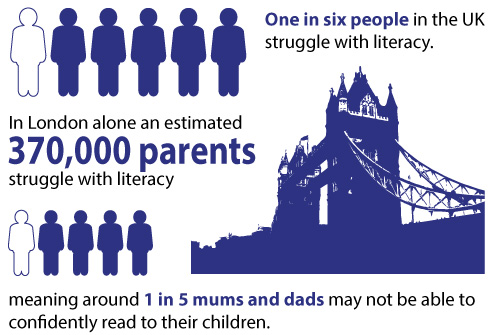No-one else could provide this kind of support. It's more than very beneficial, it's exceptional, life saving even, and comes at a time when you don't know where to turn and in circumstances that feel totally overwhelming. – Family member
When a family is faced with a sudden death there is a likelihood that one of the things that can present difficulties is the paperwork that follows. From registering a death, information about probate and wills, benefit entitlements, to investigation reports, letters and documents, families are put in a position of becoming “experts” in a subject that very few have ever had to deal with before.
Even families with a great deal of experience of complicated documents or reports, perhaps from work, find the amount of written information difficult. What makes it worse is that families are trying to get information about their relative, and reports are often written in ways that are full of jargon, clinical or impersonal.
 The previous sections have looked at families doing their own research or fact finding, but this is not always an option for families who might find the written information difficult. According to the National Literacy Trust in their report Literacy: State of the Nation (published in August 2011), one in six people in the UK struggle with literacy, and in London alone an estimated 370,000 parents struggle with literacy, meaning around 1 in 5 mums and dads may not be able to confidently read to their children. Literacy is defined as the “reading, writing, speaking and listening skills we all need to take part in day to day life”.
The previous sections have looked at families doing their own research or fact finding, but this is not always an option for families who might find the written information difficult. According to the National Literacy Trust in their report Literacy: State of the Nation (published in August 2011), one in six people in the UK struggle with literacy, and in London alone an estimated 370,000 parents struggle with literacy, meaning around 1 in 5 mums and dads may not be able to confidently read to their children. Literacy is defined as the “reading, writing, speaking and listening skills we all need to take part in day to day life”.
If reading reports, letters, documents or other written information is difficult for you, then you need to plan a strategy for getting help. In the short term you can ask for help and support from the following:
- friends and family
- caseworker
- lawyer
- people at work
- people you know from other groups or clubs you belong to
- doctor / GP for medical information or reports
- other families – if they have already been through the process they will be able to give you support
It’s important to ask rather then struggle on in silence. Technical jargon and legal information is difficult to read at the best of times. If you know you find this difficult, you are not alone, and people will be glad to help.
In the longer term you might want to improve your literacy skills for different reasons, whether it is for work, pleasure or to support your own family and friends. The following links are for websites that give information and help with literacy courses and support. You could also try your local college, trade union, or library for more advice.
Literacy Trust
BBC Skillswise
GOV.UK Adult Learning
Specific advice about complex matters like probate, wills and benefit entitlements can be confusing and difficult to understand. It is important to get clear, personal and professional advice on these matters following a death. The Benefits Agency (www.benefitshelpline.com) should be able to help with entitlements but for impartial advice it is worth contacting the Bereavement Advice Centre (www.bereavementadvice.org) the Citizen’s Advice Bureau (www.citizensadvice.org.uk) or for more information visit www.direct.gov.uk which is the government’s advice and information website.

